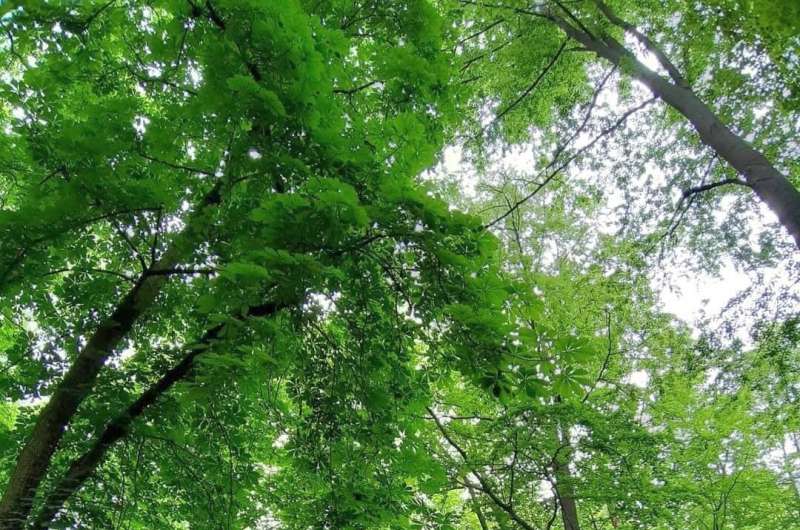Climate change in the forests of northern Germany: Team finds widespread drought stress in European beech

More and more trees are suffering the consequences of decades of manmade climate change. The growth of the European beech has so far suffered decline mainly in southern Europe. European beech is Germany’s most important native forest tree species, and it is most commonly found in central Europe.
A research team from the University of Göttingen has now been able to show that the European beech is suffering from increasing drought stress during summer in northern Germany as well. This climate stress is particularly pronounced at warmer sites, wherever there is a higher density of these trees, and on very sandy soils. The results have been published in the journal Global Change Biology.
In their study, the researchers specifically selected a wide range of sites ranging from wet to very dry, because even in northern Germany there are very dry beech forests. The scientists took numerous wood samples at all these sites to measure the tree rings in the tree trunks.
“This allows us to look back over many decades and reconstruct tree growth in the past,” explains Dr. Robert Weigel, a postdoctoral researcher in Plant Ecology and Ecosystem Research at the University of Göttingen. These data were combined with those from climate stations to derive the relationship between climate and growth of the trees.

The investigations revealed that drought and heat in June, the main month of growth for beech trees, are—across all the locations studied—the most important climate factors influencing how much the trunk will grow, with the negative effects being stronger in drier locations.
“Looking back into the past in this way enables us to gain valuable information about the potential future of beech,” states Professor Christoph Leuschner, Head of Plant Ecology and Ecosystems Research, Göttingen University.
“The clear message is dry locations show the strongest long-term decline in growth, because a lack of water is becoming much more common there,” says Weigel. “These results are a warning that the European beech will also be increasingly affected by drought, not just in southern Europe, but also in many regions here in Germany.”
For the future, therefore, it will be necessary to examine more closely where beech forests will be able to grow in northern Germany and which drought-tolerant tree species will be better able to cope with climate change, taking into account the amount of rainfall, current climate trends and soil conditions.
More information:
Robert Weigel et al, Summer drought exposure, stand structure, and soil properties jointly control the growth of European beech along a steep precipitation gradient in northern Germany, Global Change Biology (2022). DOI: 10.1111/gcb.16506
Citation:
Climate change in the forests of northern Germany: Team finds widespread drought stress in European beech (2022, December 5)
retrieved 5 December 2022
from https://phys.org/news/2022-12-climate-forests-northern-germany-team.html
This document is subject to copyright. Apart from any fair dealing for the purpose of private study or research, no
part may be reproduced without the written permission. The content is provided for information purposes only.
For all the latest Science News Click Here
For the latest news and updates, follow us on Google News.

